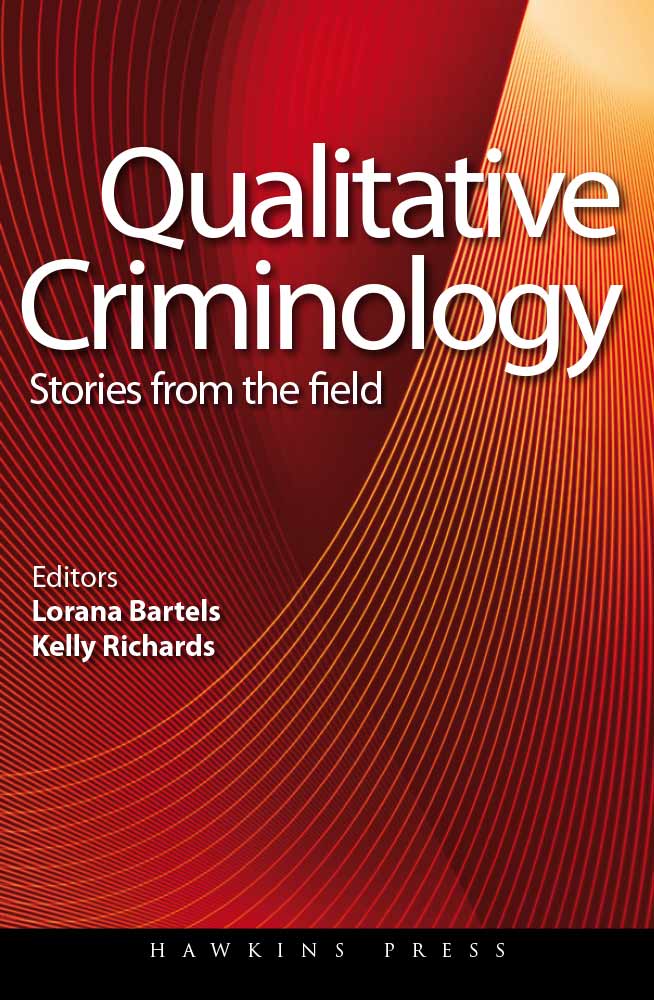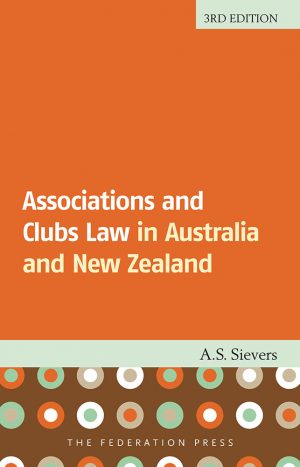Qualitative researchers in the discipline of criminology perform a wide range of challenging tasks. They interview prisoners, police officers, magistrates and judges. They speak with survivors of domestic violence, and drink tea with the mothers of murdered children. They observe courts and communities, investigate the decision-making processes of juries and immerse themselves in the data they collect. They ask ‘big’ questions – ‘how do we criminalise the producers of toxic toys?’ – as well as ‘little’ questions – ‘what should I wear to conduct this interview?’
Qualitative Criminology: Stories from the Field brings to life the stories behind the research of both emerging and established scholars in Australian criminology. The book’s contributors provided honest, reflective, and decidedly unsanitised accounts of their qualitative research journeys – the lively tales of what really happens when conducting research of this nature, the stories that often make for parenthetical asides in conference papers but tend to be excised from journal articles.
This book considers the gap between research methods and the realities of qualitative research. As such, it aims to help researchers and students who conduct qualitative criminological research reflect upon their role as researchers, and the practical, ideological and ethical issues which may arise in the course of their research. It is also a call to criminologists to make public the ‘failures’ and missteps of their research endeavours so that we can learn from one another and become better informed and more reflexive qualitative criminologists.
The story behind the stories: Qualitative criminology research in AustraliaKelly Richards and Lorana Bartels
I. Experimental and exploratory qualitative research
Qualitative encounters in policing researchJenny Fleming Interviewing the jury: Three case studies from the Tasmanian jury sentencing studyJulia Davis, Kate Warner and Rebecca Bradfield Simulation and dissimulation in jury research: Credibility in a live mock trialJane Goodman-Delahunty, Meredith Rossner and David Tait
II. Dealing with power and access
Breaking into the legal culture of the Victorian Office of Public ProsecutionsAsher Flynn Negotiating access to the NSW Police Force Media Unit: A personal research experienceAlyce McGovern Interviewing elites in criminological research: Negotiating power and access and being called ‘kid’Kelly Richards
III. Researching sensitive topics and vulnerable populations
Researching sensitive topics, emotion work and the qualitative researcher: Interviewing bereaved victims of crimeTracey Booth A marriage of (in)convenience? Navigating the research relationship between ethical regulators and criminologists researching ‘vulnerable populations’Hannah Graham Getting lost in the field: The unpredictable nature of fieldwork with young peopleAngela Dwyer and Hennessey Hayes Crossing boundaries, developing trust: Qualitative criminological research across cultures and disciplinesRoberta Julian Domestic violence research: Valuing storiesHeather Douglas Journeys outside the comfort zone: Doing research in the Aboriginal domainHarry Blagg
IV. Theoretical understandings of qualitative methodologies
Feminist criminological research and the meanings of violenceGail Mason and Julie Stubbs Criminological research and the search for meaning: some reflections on praxisChris Cunneen Be careful what you ask for: Exploring fear of crime in the fieldMurray Lee What makes a good case study and what is a case study and what is it good for?Diane Heckenberg
V. Dealing with distance: Traversing temporal and spatial boundaries
Researching Crime and violence: Untold stories from the fieldKerry Carrington The challenges of doing collaborative researchRob White Light and shadow: Comparative fieldwork in policingDavid Dixon
Index
A friend once relayed an anecdote of a preschooler referred to psychologists for repeatedly painting “dark” pictures during art and craft. The assumption was that this reflected something sinister within the child or his familial context. After various “tests”, one of the psychologists simply asked the boy: “Why do you always use black paint?” And the child replied: “Because from where I sit, that’s the only colour I can ever reach”.
Qualitative Criminology: Stories from the Field shows in clear and engaging fashion how and why such inquiry is fundamental to the criminological endeavour – that qualitative research equates to infinitely more than accessing, collecting and arranging (to paraphrase the editors) ‘bits of talk’. With sustained and reflexive reference to contributors’ own experiences, the book demonstrates how to ethically give voice to the complex personal, social, cultural and economic dimensions of crime typically obscured by statistics, political point scoring, sound bites, and the like. The book makes a timely and original contribution to the field and its depth and diversity of material will be of immeasurable value to students and scholars alike.
Mark Halsey, Associate Professor of Criminal Justice, Flinders University, Australia
This book is precisely what criminology needs. As much an art as a science, qualitative research can’t be learnt from a textbook, yet student researchers are crying out for a resource to help them think through their fieldwork. Rather than providing a prescriptive ‘how to’ recipe, then, this fascinating book provides the ‘stories’ behind the stories. It may be the only way to teach qualitative criminology; it is certainly the most engaging.
Shadd Maruna, author of Making Good: How Ex-Convicts Reform and Rebuild Their Lives, and Director, Institute of Criminology and Criminal Justice, Queen’s University Belfast




